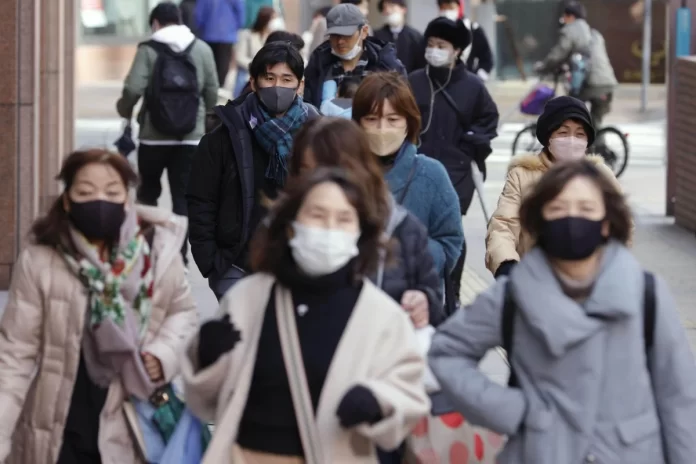Japan has the most pronounced gender gap among the 34 high-income nations of the Organisation for Economic Cooperation and Development (OECD) and ranks just 73rd out of the 190 countries surveyed in a new study conducted by the World Bank. The study, released on Monday, ahead of International Women’s Day on Friday, once again makes grim reading for a nation that has long recognised that it has a significant gender imbalance when it comes to legal rights and opportunities for men and women, yet has largely been unable to rectify those issues, analysts say.
Shockingly, the World Bank’s annual Women, Business and the Law report for 2024 ranks Japan below the Democratic Republic of the Congo, Angola, Nepal and Lesotho in a multidimensional assessment of equality between genders. The report ranks nations on eight metrics, including pay, marriage, entrepreneurship opportunities and workplace conditions, with two new areas added to the 2024 report – childcare services and safety from violence. And while Japan fared well in access to childcare services, the World Bank did raise red flags in a number of other areas, including a failure to make progress on improving the long-standing problems of unequal pay and opportunities for male and female employees. With all the elements taken into account, Japanese women enjoy only 72.5 per cent of the legal rights and protections that Japanese men do, the study concluded. In comparison, the average across the OECD is 84.9 per cent.
The report also noted that women entrepreneurs do not benefit from the same opportunities as their male counterparts, while also calling for changes to Japan’s legal framework to deal with cases of domestic violence and sexual harassment.
Japan’s low ranking in the World Bank study flies in the face of repeated commitments by Japanese governments to elevate women to the same status as men in every area of society. In 2014, for example, then prime minister Shinzo Abe declared that his administration intended to make women “shine” in the workplace and broader society, and that the benefits of his “womenomics” policies would be evident by 2020. Abe’s vision was for the number of women in managerial positions to rise from 9.2 per cent in 2014 to 15 per cent by 2020 and women in senior roles in government agencies to climb from 3.5 per cent in 2015 to 7 per cent. Neither target was met.
Targets for women taking greater roles in neighbourhood community organisations also fell short, along with plans for more women to return to the office after having a baby and for men to help out more around the family home. The 2020 deadline came and went with little to show for Abe’s grand plans, with the Council for Gender Equality indicating that the original deadline be pushed back by a decade. There is no sign that target will be met either.




















